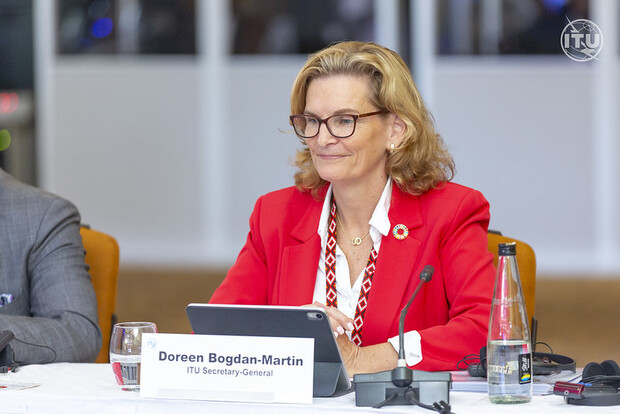How Artificial Intelligence Can Help Achieve Sustainable Development Goals
How Artificial Intelligence Can Help Achieve Sustainable Development Goals
The Global Digital Compact, adopted at the UN General Assembly last month, provides a framework for countries and industries to ensure that AI benefits all of humanity.
Artificial Intelligence (AI) features among key issues being considered by the World Telecommunication Standardization Assembly (WTSA-24) as it prepares for its second week in New Delhi, India.
Now midway through its work, WTSA-24 will determine the course of action for the next four years of standards development for the International Telecommunication Union (ITU). WTSA is the governing conference for the standardization work of ITU, the UN Agency for Digital Technologies.
Alongside reviewing mandates of expert groups, the conference is considering priorities for standards work on topics from AI and metaverse to quantum information technologies and digital public infrastructure as it runs through 24 October.
The Global Digital Compact, adopted at the UN General Assembly last month, provides a framework for countries and industries to ensure that AI benefits all of humanity.
This framework emphasizes the need for comprehensive and impactful AI standards. Similar calls have been made by the G20 and the UN Secretary-General’s High-Level Advisory Body on AI.
“AI standards can build trust, safety, and a level playing field for innovation for people across India, the region, and around the world,” said ITU Secretary-General Doreen Bogdan-Martin. “The need of the hour is to turn broad principles into clear and implementable standards that ensure AI works for everyone — responsibly and fairly.”
ITU has already published over 100 standards on AI. Over 150 more are under development. ITU standards are supporting new AI applications in network orchestration and multimedia coding, and are optimizing the energy and cost efficiency of networks and data centres. They are also amplifying AI-enabled breakthroughs in areas from climate action and agriculture to disaster response, healthcare, and road safety.
The first International AI Standards Summit – aimed at accelerating standards development for responsible, safe, and inclusive AI – closed the first week of WTSA-24 activities with AI for Good Impact India, kicking off a new series of regional AI for Good events.
The standards summit is organized by the leading developers of international standards, ITU, the International Organization for Standardization (ISO), and the International Electrotechnical Commission (IEC).
ITU, ISO and IEC are leading a new AI and Multimedia Authenticity Standards Collaboration, including AI watermarking and deepfake detection. Announced in May at this year’s AI for Good Global Summit, the initiative welcomes all standards bodies addressing this key challenge.
The three organizations are also collaborating to develop an AI standards database in support of cohesive AI standards development and implementation, a key priority for the UN Secretary-General’s Envoy on Technology, Amandeep Singh Gill.
The new Young AI Leaders Community announced on 18 October at AI for Good Impact India is inviting AI experts from 18 to 30 years old to lead the development of six regional hubs for the community.
The community is the latest addition to ITU’s AI for Good Impact Initiative, following the launch of a new AI Skills Coalition last month. The initiative’s flagship programmes also include Global AI Challenges and the AI for Good Innovation Factory and associated Startup Acceleration Programme.
The Robotics for Good Youth Challenge for innovators between 11 and 18 years old hosted the finals of India’s championship, the first of 25 national championships to culminate in a world cup at the AI for Good Global Summit 2025.
ITU also released the AI for Good Impact Report, highlighting worldwide trends in AI investment, governance, and skills development. Prepared in partnership with Deloitte, the report focuses on how AI can drive progress on the UN’s 17 Sustainable Development Goals (SDGs).
Courtesy: ITU
Related Posts
-
 Honeywell to Make Connected Aircraft for Air China
No Comments | Feb 19, 2014
Honeywell to Make Connected Aircraft for Air China
No Comments | Feb 19, 2014 -
 Website Launched to Cover Farmers Protests in India
No Comments | Jan 2, 2025
Website Launched to Cover Farmers Protests in India
No Comments | Jan 2, 2025 -
 Netflix Offers NBCUniversal Shows for Canadian Members
No Comments | Nov 29, 2013
Netflix Offers NBCUniversal Shows for Canadian Members
No Comments | Nov 29, 2013 -
 How to Use Social Media and Protect the Integrity of Elections
No Comments | Jan 10, 2018
How to Use Social Media and Protect the Integrity of Elections
No Comments | Jan 10, 2018











